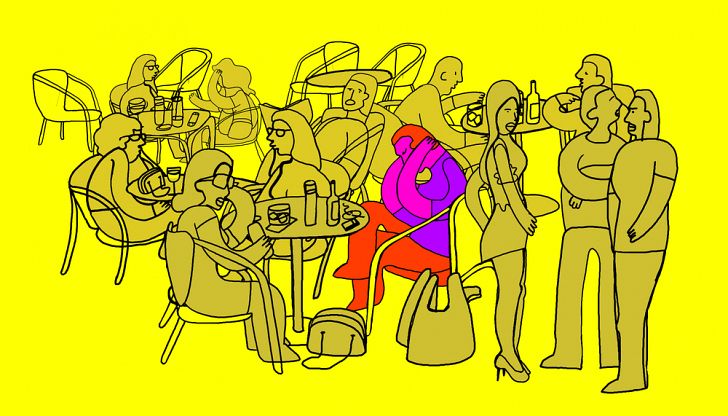Lifestyle | April 28th, 2020
Online Classes: Better or Worse for Socially Anxious Students?
By: Jazlen Patrick

From adults losing their jobs to students leaving schools, the coronavirus struck all of America suddenly- leaving families to adjust to their normal ways of living. With precautionary social distancing in mind, states all over the country called for stay-at-home orders. These orders caused Americans across the country to make sudden decisions for their families and colleagues.
One of the most prominent changes that have occurred due to COVID-19 is the switch from face-to-face learning to online. Students all over the country were forced to continue their education using Zoom, which is a video communication system that allows for teachers to instruct students online. Remote instruction is an idea that many students do not favor, but for students with social anxiety, you could say it worked in their favor.
Social anxiety is a mental health condition. According to socialphobia.org, “Social anxiety is the fear of social situations that involve interaction with other people.” When put in social situations, they fear being assessed and judged by others. As to be assumed, students with social anxiety are not particularly in favor of face-to-face instruction.
Students like Mariah Holdip, a first-year Florida A&M University Biology Pre-med student, says while at home she does not have to worry about her classmates watching her and dealing with the attention she’d receive when arriving late to class.
“It feels like I’m being watched in social settings,” Holdip said.
For these students with social anxiety, it is often wondered whether this new method of learning is better or worse for their anxiety. After asking students with social anxiety whether remote instruction was better or worse for them, the responses were as predicted. The majority agreed that they do not mind taking their courses online.
Take Jalynn Baxley, a first-year East Georgia State College education student as an example. “It is better because I don’t have the fear of having to answer questions in front of others,” Braxley says.
Some students with social anxiety feel more capable in the comfort of their homes.
“Although it comes with many distractions from home, I feel like online classes are better for me because I’m in my comfort zone,” Holdip says. She mentioned that this time at home has helped her because she can move at her own pace while doing classwork. “It gives me a more comfortable feeling being alone in my room rather than being paranoid that all eyes are on me [in the classroom],” she explains.
Zion Afolabi, a FAMU first-year Graphic Design student, agrees with the idea of taking online classes at home. Afolabi explains, “I get to be in my own environment and space that I’m already familiar with.”
But unlike the others, Tatyana Dixon has mixed feelings about whether or not online classes are better or worse for her anxiety.
“It’s better because I’m not always in a situation where I feel like I’m obligated to speak or introduce myself,” Dixon says. She even mentioned that not having to sit around many people in class allows her to no longer feel a sense of nervousness.
Though Dixon has social anxiety, she feels it is important to interact and communicate with her peers on campus, especially when seeking to get involved. She says, “I need to try and become comfortable,” and agrees that she can’t become comfortable through a computer screen. Thus, making online schooling worse for her.
Tatyana, and many other students with social anxiety, believe that social interaction is important. These students are constantly finding ways to get out of their comfort zone in spite of their anxiety.
It is important to realize that students with social anxiety do not fear people, but simply the interaction and judgment that comes along with it. These students, alongside many others, find peace in their comfort. Therefore, remote instruction is not such a bad change for these students.






